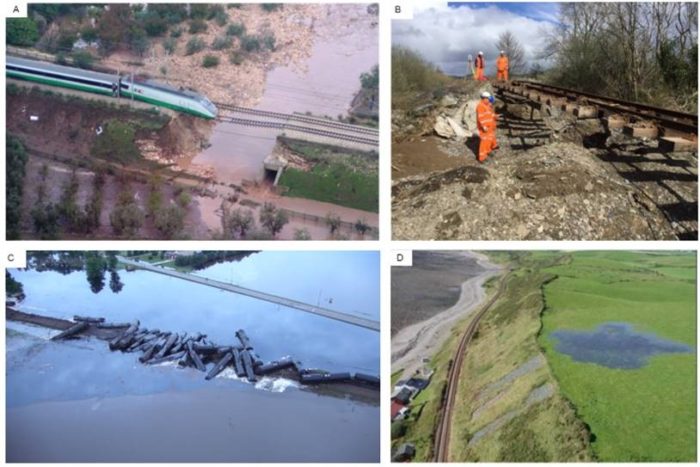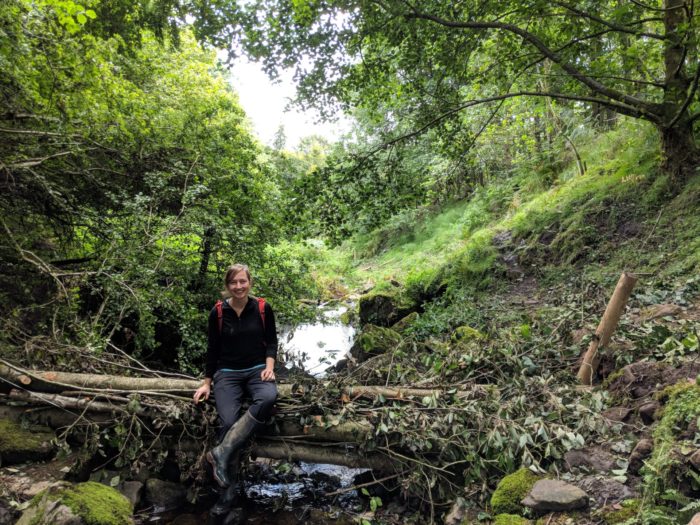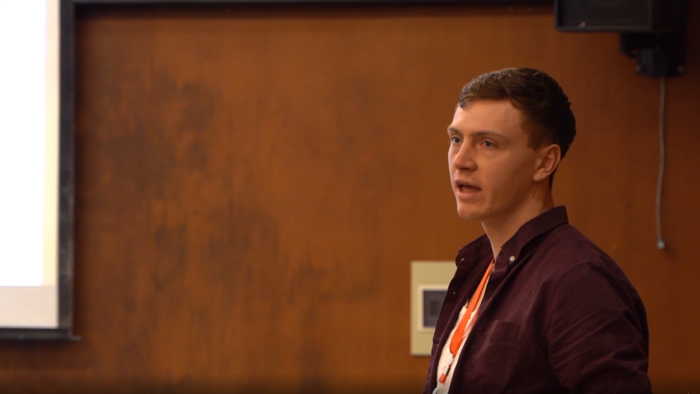water@leeds BHS Christmas Lecture 2021
water@leeds has partnered with the British Hydrological Society Pennines group to showcase new research in a second Christmas Lecture, which this year highlights the work of two postgraduate researchers working on projects related to flood impact.
The lecture will take place on 29 November, 12.00-1.00pm on line.
Register here.
Effects of flooding on the stability of rail embankments.
Iain Johnston, School of Earth and Environment
Although transport embankments are often not designed for flood retention, flooding behind linear infrastructure embankments is relatively common. Despite a well-developed understanding of the causes of slope failure, there remains a limited understanding of what happens to slopes impacted by the same processes which do not fail. The main focus of my research, and of this talk, is considering how seepage through slopes caused by flooding causes changes in soil structure, and how these changes may cause lasting alterations to material properties and slope stability - in slopes which are affected by flooding but which do not fail. A review of flood impacts on the stability of transportation embankments was undertaken, in which the types of flood which cause slope instability or failure, and the specific destabilisation processes which cause this instability, were identified based of a range of case studies in the UK and abroad. From this review, experimental programmes were undertaken to assess the magnitude and locations of property alterations in embankments following flooding – focussing on the effects of seepage induced internal erosion processes.


Opportunities and risks of leaky dams for flood risk management in upland streams
Zora van Leeuwen, School of Geography
Natural Flood Management is an increasingly popular tool used alongside engineered defences to combat rising flood risk around the world. In the UK, leaky dams which mimic the functions of naturally occurring in-stream wood have been widely implemented in both lowland and upland catchments for the purpose of flood risk management. Whilst leaky dams have been shown to delay flood peak timing, there is little quantitative evidence of their impacts on flood peak magnitude. Moreover, whilst concerns about maintenance and failure probability present a barrier to implementation of leaky dams, very few studies have addressed the resilience of these structures. In this presentation I will summarise the findings from a study in which three upland streams in a headwater catchment in North Yorkshire were monitored before and after the installation of leaky dams. The empirical data is used to quantify the stream scale impact of leaky dams on flood peak magnitude in upland rivers alongside a probabilistic analysis of structure resilience.




